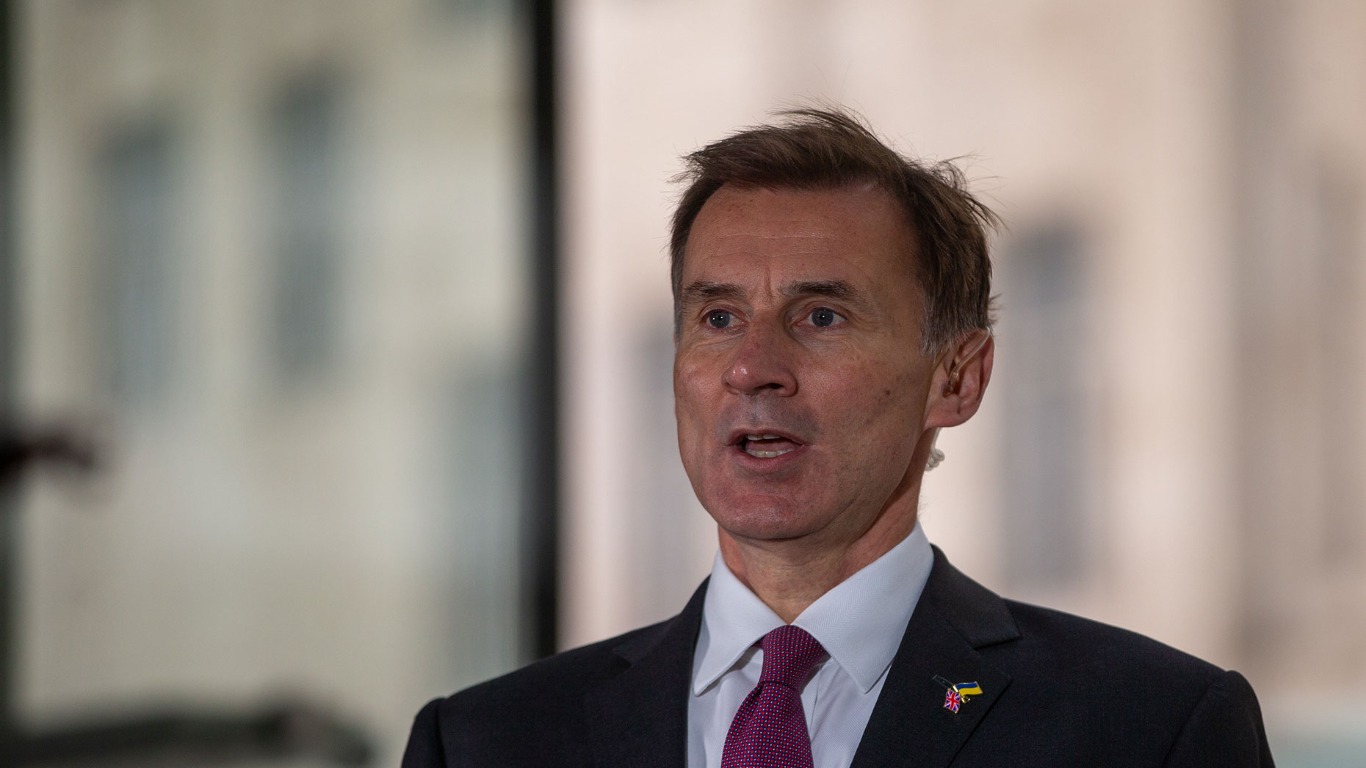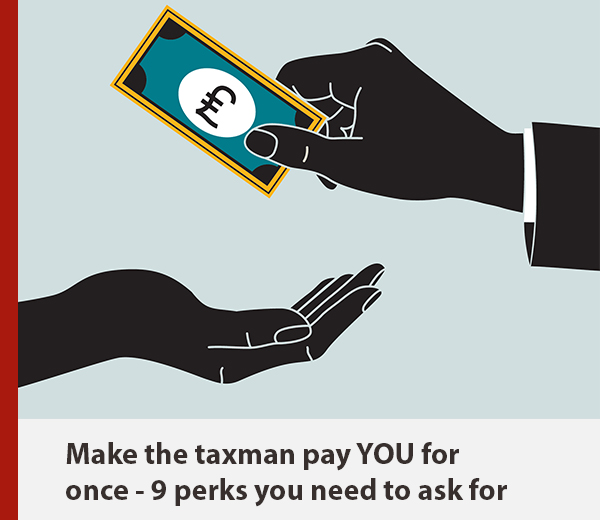Autumn Statement 2023: what it means for your money
A cut to National Insurance was the headline giveaway along with a big benefits shakeup. Here's how the Autumn Statement affects your pocket.
loveMONEY comment: giving with one hand, taking with the other
Jeremy Hunt, the Chancellor of the Exchequer, has just delivered his Autumn Statement for 2023.
While the chancellor made a big song and dance about his giveaway to UK companies – the “biggest business tax cut in modern British history” – the main announcement for UK households was the National Insurance cut from 12% to 10%.
While any tax cut is welcome, much of that benefit will be eroded by the ongoing freeze to personal tax thresholds, which has been in place since 2021.
In a nutshell, millions of households have been paying more in tax as their incomes have increased while the point at which NI and Income Tax thresholds apply has remained static.
As Shaun Moore, tax and financial planning expert at financial firm Quilter, points out: "Hunt has given workers a minuscule nibble of carrot with his 2p cut to National Insurance contributions after they’ve been battered by stick recently.
"The reality is workers are just £2.68 a week better off due to today’s tax ‘giveaway’ than they would have been had tax thresholds not been frozen".
It will be a similar story for pensioners, who of course won't benefit from the NI cut as it is targeted at workers and the self-employed.
While the Autumn Statement contained good news for them in the form of an 8.5% hike to the State Pension, they will also be hampered by the tax threshold freeze.
And given that said freeze is set to last until 2028, the Government will be raking in ever more from households as incomes rise each year.
It looks like a classic case of giving with one hand while taking with the other.
That's worth keeping in mind as we run through all the big announcements from today's Autumn Statement, which we'll do now – starting with the NI cut.
National Insurance cuts
The NI cut has two parts to it.
Firstly, the main rate of Class 1 employee National Insurance contributions will be cut from 12% to 10% from 6 January next year.
The chancellor described it as the “largest ever cut” to employee NI, which will save the average worker £450 a year.
Secondly, there was help announced for the self-employed, with the Chancellor emphasising the important role they played during the pandemic.
As well as reducing the main rate of Class 4 self-employed NICs from 9% to 8%, he announced that Class 2 NICs would be abolished.
It’s believed that these changes will help two million self-employed people, potentially saving them around £350 a year.
State Pension hike & 'pot for life' announcement
The Chancellor pledged to honour the Government’s commitment to the pensions triple lock in full and declared: “A Conservative government will always back our pensioners.”
He revealed that the State Pension will be increased 8.5% from April 2024, meaning the New State Pension will rise to £ 221.20 a week, an increase worth almost £900 each year.
Sian Steele, head of tax at Evelyn Partners, commented: “This will be very welcome to those receiving, or about to receive, the state pension at a time of rising living costs.”
Mr Hunt also unveiled plans to consult on the possibility of a pension pot for life.
This could involve giving savers “a legal right” to require employers to pay contributions into their existing pensions.
However, Mark Futcher, partner at independent consultancy Barnett Waddingham, questioned whether this would bring any benefits.
“Staying in the same pot means savers risk delays to investment decisions, poorer products, a lack of employer governance, and higher fees, as individual employees will always get a worse deal than large firms,” he said.
National Living Wage hike
The National Living Wage is rising almost 10% from £10.42 to £ 11.44 an hour, which will be worth up to £1,800 for a full-time worker.
Eligibility for the National Living Wage will also be extended by reducing the age threshold to 21-year-olds for the first time.
This means a 21-year-old will receive a 12.4% increase, from £10.18 this year to £11.44 next year, worth almost £2,300 a year for a full-time worker.
Individual Savings Accounts
There were also benefits for ISA investors, although you had to dig deep into the Autumn statement to spot it, according to Myron Jobson, senior personal finance analyst at interactive investor.
“The Government unveiled a host of measures to simplify the ISA regime including allowing multiply ISA subscriptions and allowing partial transfers between providers from the new tax year,” he said.
He also pointed out that investment opportunities available in ISAs has also been expanded to include Long-Term Asset Funds and open-ended property funds with extended notice periods.
“However, investors will still need to contend with cuts to capital gains and dividends tax allowances, which are still on course to be halved to £3,000 and £1,000, respectively, in the new tax year,” he said.
“This reinforces the importance of making the most of this year’s ISA allowance to protect your investment returns from tax in the future.”
Benefit increases
The Chancellor announced plans to help the poorest in society, with benefits rising by 6.7% next year, which is in line with the inflation rate for September.
However, welfare rules are being tightened, with mandatory work placements coming into force for those not finding a job after 18 months of intensive support.
In addition, those choosing not to engage with the work search process for six months will have their benefits stopped.
No Inheritance Tax changes
There was nothing in the speech about the much-hated Inheritance Tax.
This was branded a “notable absence” by Shona Lowe, financial planning analyst at abrdn.
“Rising asset values, coupled with frozen allowances and hugely complex rules, has increasingly put people at risk of being hit with an unexpected, and potentially considerable, tax bill after the death of a loved one,” she said.
Take matters into your own hands with our guide to cutting your IHT bills
No tax hikes for drinkers...
The chancellor has announced a freeze on all alcohol duty until August 2024.
While a freeze isn’t exactly something to cheer about, there had been rumours of a whopping inflation-linked hike that would have significantly driven up prices.
...No such luck for smokers
However, duty on hand-rolling tobacco will be increased by an additional 10% above the Tobacco Duty escalator.
That works out to a hefty £2 hike on a 30g pack, with the increase kicking in tonight.
No change to Fuel Duty
As expected, there was no mention of changes to current rates of Fuel Duty.
£1,000 a year off energy – for a select few
Finally, while this isn't one that will apply to many households, those who live near any new pylons or 'clean energy infrastructure' can expect to save up to £10,000 off their electricity bills over 10 years as part of broader reforms to help for clean energy businesses gain faster access to the electricity grid.
Comments
Be the first to comment
Do you want to comment on this article? You need to be signed in for this feature

